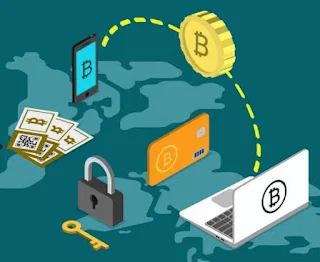In the ever-evolving landscape, financial technology, blockchain stands out as a transformative force, promising to revolutionize payment systems in the future. Below are several contributions of blockchain technology to the future of payment systems:
1. Decentralization
Blockchain eliminates the need for intermediaries like banks or payment processors by enabling peer-to-peer transactions. Decentralization reduces transaction costs. Thus, individuals have more control over their finances.
2. Security
The inherent cryptographic featu0res of blockchain ensure that transactions are secure and tamper-proof. Each transaction is verified by multiple nodes in the network, making it extremely difficult for fraudulent activities to occur.
3. Transparency
Every transaction on a blockchain is recorded on a public ledger, providing transparency and traceability. Thanks to this transparency, the risk of disputes is reduced and trust between users increases.
4. Speed and Efficiency
Traditional payment systems often involve multiple intermediaries and can be slow, especially for cross-border transactions. Blockchain-based payments are typically faster and can occur in real-time, regardless of geographical location.
5. Cost-Effectiveness
By eliminating intermediaries and automating processes, blockchain reduces transaction fees associated with traditional payment systems. This cost-effectiveness is particularly beneficial for microtransactions and international remittances.
6. Financial Inclusion
Blockchain has the potential to bank the unbanked by providing access to financial services for individuals who are underserved or excluded by traditional banking systems. Thanks to this transparency, the risk of disputes is reduced and trust between users increases.
7. Smart Contracts
Blockchain platforms like Ethereum enable the creation and execution of smart contracts, which are self-executing agreements with the terms of the contract directly written into code. Smart contracts automate payment processes, reducing the need for intermediaries and streamlining transactions.
8. Cross-Border Payments
Blockchain technology facilitates cross-border payments by eliminating the need for currency conversion and reducing settlement times. This enables faster and more cost-effective international transactions, benefiting businesses and individuals alike.
9. Immutable Records
Records cannot be modified or deleted once they are saved on the blockchain. Thus, the integrity of the payment system is ensured. This immutability reduces the risk of fraud and provides a reliable audit trail for financial transactions.
10. Integration with Emerging Technologies
Blockchain technology can be integrated with other emerging technologies such as Internet of Things (IoT) and artificial intelligence (AI) to create innovative payment solutions. For example, IoT devices equipped with blockchain technology can autonomously initiate and settle payments for services.
In conclusion, blockchain technology holds immense potential to transform payment systems in the future by offering decentralization, security, transparency, speed, cost-effectiveness, financial inclusion, smart contracts, cross-border capabilities, immutable records, and integration with other emerging technologies. As adoption and innovation continue to accelerate, blockchain-powered payment systems are poised to shape the future of finance on a global scale.

